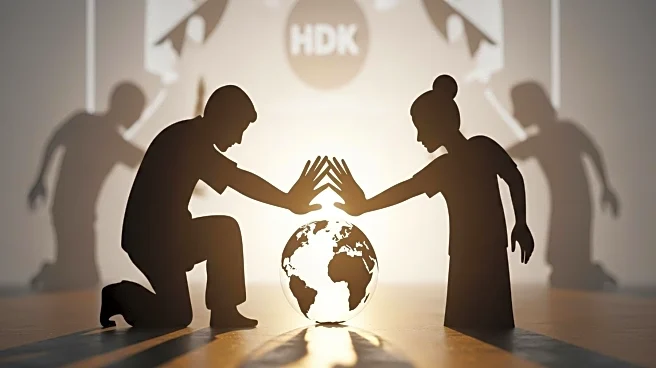What's Happening?
The United Nations is facing a period of uncertainty, marked by cutbacks and questions regarding its relevance. Despite this, numerous foundations and nonprofits are set to convene in New York for a series of conferences and meetings alongside the U.N. General Assembly. The Gates Foundation has delayed its annual report on global development goals due to unclear commitments from countries regarding foreign aid and global health funding. The Clinton Global Initiative is altering its format to encourage new program development during its conference. The U.S., the largest funder of the U.N., has frozen funding, leading to layoffs and program reductions. The Security Council has been criticized for its inaction in stopping major wars. Despite these challenges, the U.N. remains a crucial venue for global gatherings, according to Kevin Sheekey, senior adviser to Mike Bloomberg.
Why It's Important?
The gathering of foundations and nonprofits at the U.N. highlights the ongoing importance of global cooperation, even as the organization faces significant challenges. The U.S. funding freeze and the Security Council's inaction could have far-reaching impacts on international peacekeeping and development efforts. The emphasis on smaller, more substantive discussions reflects a growing urgency to address global issues. The involvement of influential figures and organizations, such as Melinda French Gates and the Clinton Global Initiative, underscores the critical role of philanthropy in addressing global challenges. This event serves as a platform for collaboration and innovation, particularly in areas like gender-based violence and economic development.
What's Next?
The U.N. General Assembly week will continue to serve as a pivotal moment for global leaders, businesses, and philanthropies to forge new partnerships and develop solutions to pressing issues. The focus on African countries and sports by Bloomberg's organization suggests potential investment opportunities. The Clinton Global Initiative's new format may lead to innovative programs addressing urgent global challenges. The ongoing discussions and events are expected to foster greater collaboration among diverse stakeholders, potentially influencing future policy and funding decisions.
Beyond the Headlines
The current situation at the U.N. raises questions about the future of international cooperation and the role of major powers in global governance. The emphasis on gender-based violence and economic opportunities for survivors highlights the intersection of social issues and economic development. The evolving format of conferences and meetings may signal a shift towards more inclusive and action-oriented approaches in addressing global challenges.











